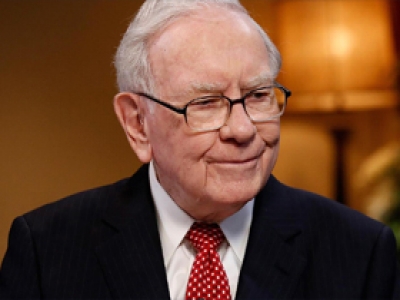Warren Buffett needs no introduction in the investment world. He is one of the most iconic and successful investors of our time. Buffett’s investment philosophy focuses on value investing, which means picking stocks and bonds that are available at good value. But he acknowledges that individual stock picking is not for everybody. He strongly advises that the average long-term investor would benefit from a much simpler strategy like investing in low-cost index funds.
In fact, to prove his point, Buffett in 2007 made a $1 million bet against Ted Seide, then co-manager of Protégé Partners, that hedge funds wouldn’t outperform an S&P index fund in 10 years. Protégé Partners is a specialized asset management and advisory firm that was founded in 2002 to focus exclusively on investing in established smaller hedge funds and select emerging managers. Simply put, it is a fund that invests in multiple hedge funds.
After 10 years, Buffett won by a considerable margin. His choice fund - the Vanguard 500 Index Fund Admiral Shares - outperformed the basket of hedge funds by 4.9% CAGR.
But why is Buffett so positive on passive funds? In this article, let us look at some of the major reasons why this iconic investor of our times strongly recommends passive funds for common investors.
Cost effective
One of the major benefits of passive funds is they have lower expense ratios as compared to actively managed funds. This results in lower costs for the investors and can have a significant impact on final returns earned by investors in the long-run.
“I would be very careful about the costs involved. I think that the people who buy those index funds, on average, will get better results than the people that buy funds that have higher costs attached to them, because it's just a matter of math," Buffett had said at his annual shareholder's meeting in 2002. And even in his recent interviews in 2020, he has reiterated this belief.
Sensible investment
Buffett says index funds are 'the most sensible equity investment' for most people. This is because the index actually rebalances itself every three to six months. This means investors can be sure to always hold the best possible companies. In fact, such rebalancing ensures that passive funds are able to get the stocks that are doing well early on, while making sure that poor performing stocks get less significance.
“A low-cost index fund is the most sensible equity investment for the great majority of investors," Buffett told John C. Bogle in his book ‘The Little Book of Common-Sense Investing.’ "By periodically investing in an index fund, the know-nothing investor can actually outperform most investment professionals," Buffett said.
In the Indian context, the ‘periodic investment’ suggested by Buffett can be done through SIPs in index funds. This allows average investors to invest small amounts slowly over a long period of time and take the benefit of rupee-cost-averaging. Buffett feels it is a sound strategy for most long-term investors.
Eliminating unsystematic risk
One of the major benefits of index funds is they are not tied to the success of a fund manager’s picks or a fund house’s investment process. This is called the elimination of unsystematic risk, which is the risk of selection of wrong investment products. Since the passive investment strategy does not offer such flexibility to the fund managers, such risks get mitigated.
“The trick is not to pick the right company,” Buffett says. “The trick is to essentially buy all the big companies through the S&P 500 and to do it consistently.”
To sum up, there are three essential characteristics of Buffett's investment philosophy: patience, discipline and risk aversion. And passive funds embody all three.






